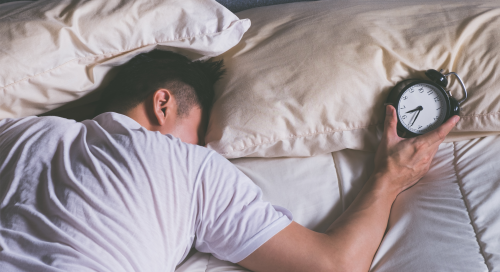Let’s talk about something we all need more of—sleep! In our fast-paced world, it’s easy to overlook, but did you know that getting enough shut-eye is crucial for keeping our immune system in top shape? Understanding the relationship between sleep quality and immune health is essential for maintaining overall well-being.
The Science Behind Sleep and Immunity
When we sleep, our body goes into repair mode. One key job during this time is for the immune system to release cytokines, proteins that help fight infections and inflammation. Without enough sleep, our bodies produce fewer of these protective proteins, making us more vulnerable to illness.
A fascinating study from the Universities of Tübingen and Lübeck showed that even just three hours of sleep deprivation can impair T-cells, the immune cells that combat infections. That’s a strong case for hitting the hay early!
Additionally, sleep helps regulate hormones like adrenaline and prostaglandins. These hormones can suppress immune function when elevated, often due to chronic stress. By getting adequate sleep, you help keep these hormone levels in check, supporting a robust immune response.
The Role of Sleep Duration and Quality
Different ages need different amounts of sleep. Adults generally need 7-8 hours, teenagers around 9-10 hours, and school-aged kids even more. It’s not just about how long you sleep, but how well you sleep too. Poor sleep quality can leave you more susceptible to getting sick because your body isn’t producing enough immune-boosting cells during deep sleep.
Practical Tips for Better Sleep Quality
Here are some sleep tips to help you catch those quality Zzz’s:
1. Establish a Routine: Stick to a regular sleep schedule, even on weekends.
2. Create a Sleep-Friendly Environment: Make your bedroom cool, dark, and quiet and keep your mobile out of it.
3. Limit Screen Time: Turn off electronics at least an hour before bed.
4. Mind Your Diet: Avoid caffeine and heavy meals before bedtime.
5. Exercise Regularly: Regular exercise can help you sleep better, just avoid intense workouts right before bed.
More Strategies for Better Sleep
In addition to the basics, consider these strategies for enhancing your sleep quality:
– Mindfulness and Relaxation Techniques: Practices like meditation, deep breathing exercises, and progressive muscle relaxation can help calm your mind and prepare your body for sleep. Even a short meditation session before bed can make a big difference.
– Consistency is Key: Going to bed and waking up at the same time every day, even on weekends, can regulate your body’s internal clock, making it easier to fall asleep and wake up naturally.
– Limit Naps: While napping can be beneficial, excessive or late-afternoon naps can interfere with your nighttime sleep. Keep naps short and early in the day if needed.
Understanding the Impact of Sleep Deprivation
Sleep deprivation not only affects your daily functioning but also has long-term health implications. Chronic lack of sleep can lead to various health issues, including weakened immune response, increased inflammation, and higher susceptibility to chronic diseases such as diabetes and heart disease. Recognizing the signs of sleep deprivation and taking steps to improve sleep quality can significantly impact your immune health and overall well-being.
The Connection Between Sleep and Mental Health
Mental health and sleep are closely intertwined. Poor sleep can contribute to mental health issues like anxiety and depression, which in turn can negatively affect sleep quality. Establishing a healthy sleep routine can improve mood, reduce stress, and enhance cognitive function, creating a positive feedback loop that benefits both mental and physical health.

Getting good sleep is one of the simplest and most effective ways to boost your immune system and overall well-being. Prioritize your rest—your body will thank you for it! By incorporating healthy sleep habits, managing stress effectively, and understanding the importance of sleep quality and duration, you can support a robust immune system and enjoy a healthier life.
For more in-depth information, check out these resources on Healthcare-in-Europe and the Sleep Foundation.
So tonight, make sure to tuck yourself in early—your immune system will be glad you did! 🌙😴
For more ways to balance your immune system and sleep healthy please visit my site.
#sleepquality #healthyliving #immuneboost #selfcare #wellness #mindfulness





